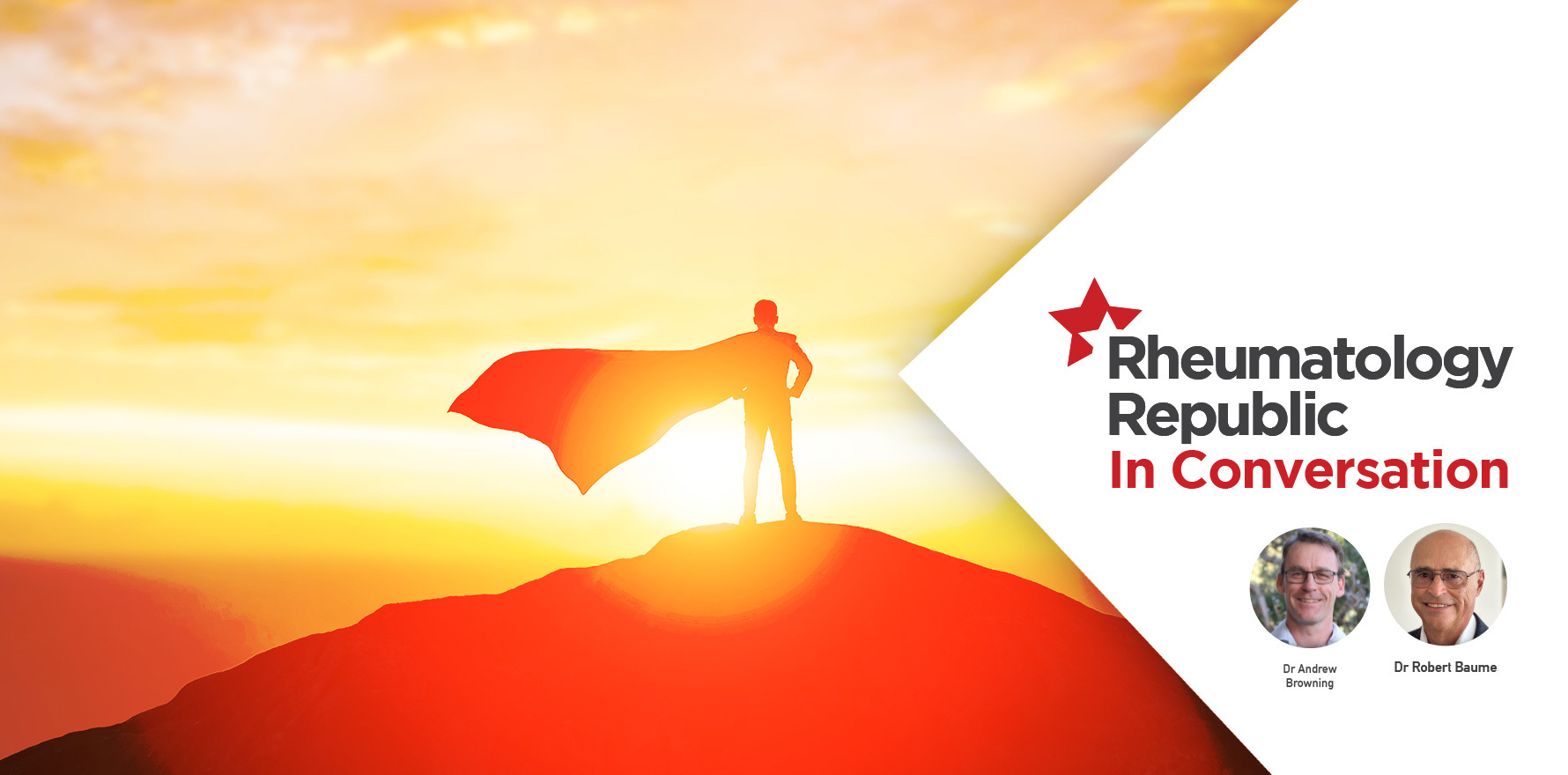Some hero doctors do the hard yards saving lives overseas, but for most of us, giving a little can make a much bigger difference, says Sydney rheumatologist Dr Rob Baume.
Voluntourism is an enticing form of travel: exotic locales, cultural immersion, serving needy populations with your skills – all wrapped up in your four weeks’ annual leave.
Not so fast. Before packing your passport and mosquito net, tune in to Rheumatology Republic podcast to hear from two guests who might make you reconsider.
Sydney rheumatologist Dr Rob Baume says he considered Médecins Sans Frontières after a bout of professional burnout, but ended up staying put.
“When I did a bit of more research, I found that unless you have a specific specialty such as anesthetist or an obstetrician, you need to sign up for nine months. The other part of the equation is that I don’t speak the language. Then there’s also the cost, the health risks and the risk to your life,” he said.
Instead of volunteering himself, Dr Baume has just reached a milestone: raising $1 million for healthcare in developing nations through his charity, Twice the Doctor.
The idea is that you “volunteer” in your own practice for one day per year (or more if you wish), see your own patients and donate the income from that day. Twice the Doctor, in partnership with UNICEF and The Fred Hollows Foundation, uses those funds for doctors and primary healthcare workers in Africa.
One day of your wages is around the same as one month’s wages for a doctor in Africa, or six months for a nurse.
Dr Baume says research shows that if a doctor wants to make maximum impact on the world, it doesn’t matter which specialisation they have.
“What matters is that you give a fair bit of your income to third world causes,” Dr Baume said.
Our second guest, Dr Andrew Browning, has been doing fistula surgery in Africa through the Barbara May Foundation for around 25 years. He says it’s life-changing for patients who start to live normal lives again after the deeply distressing injury caused by obstructed labour. However, Dr Browning says a donation that funds local health workers may better support outcomes than a short-term volunteering stint.
Short-term volunteers often teach local staff new clinicial approaches. However, the volunteer’s lack of relationship and cultural understanding can stymie the uptake of Western ways.
“You don’t know the culture, you don’t know the way things work or don’t work.
“The people [healthcare staff] there are very polite, very long-suffering, and will put up with you for the time that you’re there. Then as soon as you leave, they just go back to their normal ways.”
There are some spaces for shorter-term volunteers if you have specialised in obstetrics, gynaecology or midwifery, he says.
“Around 40% of these girls [with fistulas] have been suicidal or attempted suicide with this injury, 100% of them are depressed. And when you treat them they just turn back to normal, happy citizens,” Dr Browning says.
You can listen and subscribe to the show by searching for “Rheumatology Republic – In Conversation” in your favourite podcast player.


